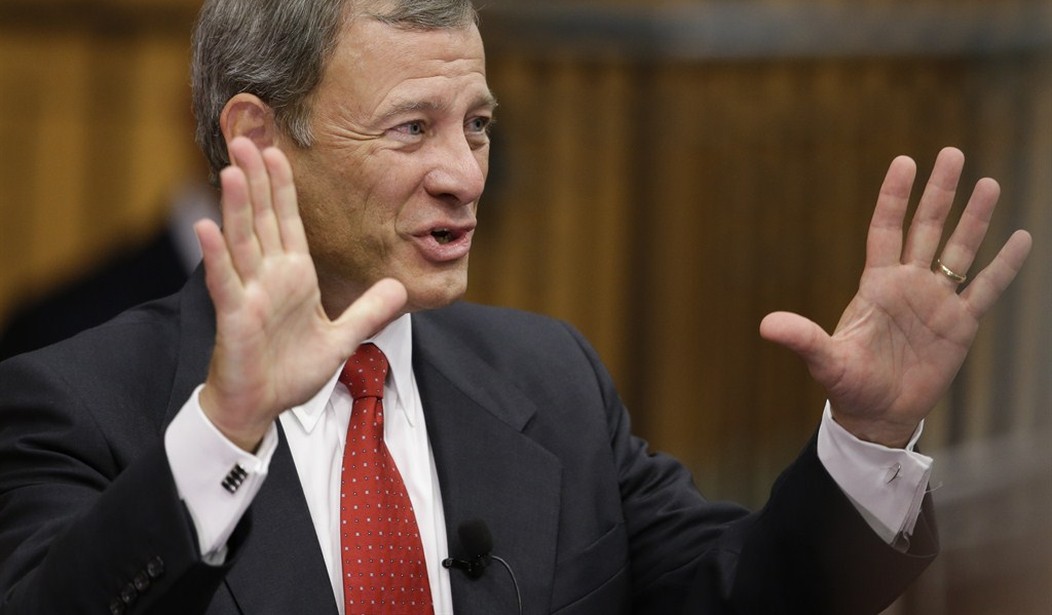Chief Justice John Roberts saved Obamacare for a second time today, fueling conservative skepticism about his commitment to straightforward and originalist jurisprudence. His overt warmness toward highly improbable interpretations of laws — particularly when they are politically controversial, like the Affordable Care Act (ACA) — is earning him the scorn of those who praised his nomination to the Court ten years ago.
Roberts was nominated in 2005 by then-President George W. Bush as the replacement for Chief Justice William Rehnquist. Like all Supreme Court nominees, he was chosen mainly for his judicial philosophy as demonstrated by his track record in lower courts. Since his nomination and swearing-in, he has leaned conservative. But he has also jump ship to side with the Court's liberal wing from time to time.
Some see the Chief Justice's relative unpredictability as a positive, a means of protecting the Court's credibility in a period of intense political polarization. Roberts is keenly aware of the Court's public image, as well as his own legacy, and he has gravitated away from statements that might cast him as a political partisan on the bench. He sees himself as preserver of optics for the nation's highest court.
This goal has arguably had an effect on the Chief Justice's own jurisprudence in key cases. He has demonstrated a willingness to treat laws as extremely elastic in their range of possible meanings. For instance, today, he articulated the hermeneutical principle that defined his reading of the legal text under scrutiny:
Congress passed the Affordable Care Act to improve health insurance markets, not to destroy them. If at all possible, we must interpret the Act in a way that is consistent with the former, and avoids the latter.
There it is: "If at all possible." The Chief Justice's approach is to interpret laws as generously as humanly possible. His posture is to assume the constitutionality of a law unless it is explicitly unconstitutional. And even then, today's ruling might push that principle even further, since he ignored the portion of the ACA that was under scrutiny in favor of the broader meaning of the law. He ignored a blatant contradiction in the legislation.
Recommended
Many conservatives are concerned that Roberts' goal of non-politicality has morphed into an exercise in liberal placation. In an effort to prove that he is legitimate and an important Chief Justice, he refuses to strike down the cornerstone achievement of the Obama presidency, regardless of the law's possible unconstitutionality.
In the words of lawyer Carrie Severino: "If the chief justice is willing to join the court's liberals in this linguistic farce, it's time we admitted that our national 'umpire' is now playing for one of the teams."

























Join the conversation as a VIP Member